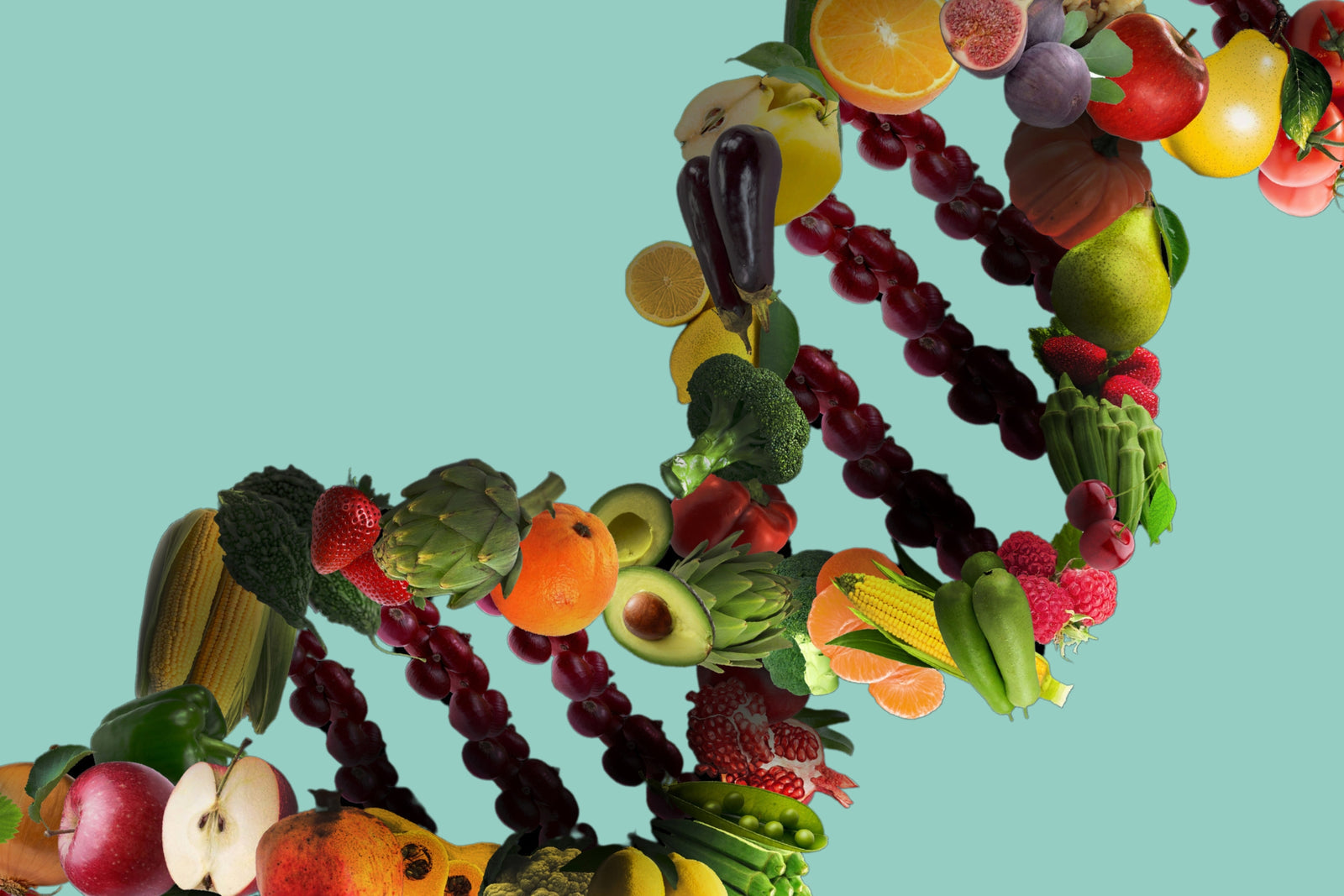Understanding Biotin and Your BTD Gene
Biotin, also called vitamin B7, is a water soluble vitamin that helps convert food into energy and supports healthy hair, skin, nails, and blood sugar balance. The BTD gene makes the enzyme biotinidase, which recycles biotin so your body can reuse it. Certain variants in BTD can lower biotinidase activity and may reduce biotin availability, especially during times of increased need such as growth, pregnancy, illness, or intense training.
How reduced biotinidase activity can affect you
- Lower recycling of biotin can increase risk of functional biotin insufficiency.
- Signs of low biotin can include fatigue, poor recovery, hair thinning, brittle nails, or skin changes, although these symptoms are not specific to biotin alone.
- Periods of higher metabolic demand or impaired nutrient intake make maintaining biotin status more important.
Food and lifestyle strategies to support biotin
Prioritize whole foods and a healthy gut microbiome to support biotin status naturally:
- Biotin rich foods: thoroughly cooked eggs, dairy or fortified dairy alternatives, legumes, nuts, seeds, and whole grains.
- Gut health: eat a variety of fiber rich plant foods and include fermented foods like yogurt, kefir, sauerkraut, kimchi, or miso to support bacteria that contribute to biotin production.
- Balance and timing: spread protein and complex carbohydrates across the day to support steady energy metabolism.
- Avoid raw egg whites regularly, as they contain avidin which can bind biotin and reduce absorption.
Supplements, testing, and precautions
- Discuss supplements with your healthcare provider if dietary intake is uncertain or if you have increased needs. Low to moderate dose biotin or a B complex may be appropriate for some people.
- Very high dose biotin supplements can interfere with certain lab tests, including some hormone and cardiac assays. Tell your provider if you are taking biotin before blood testing.
- Consider clinical testing only when symptoms or clinical concerns suggest deficiency. Routine testing is not required for everyone.
What your genotype for rs80338684 may mean
Two effect alleles (TT)
If you have the TT genotype, you carry two copies of the effect allele associated with reduced biotinidase enzyme activity. This may reduce your ability to recycle biotin efficiently from food and normal cellular processes. Biotinidase acts as a biotin liberator, freeing the vitamin so cells can reuse it for energy metabolism, fatty acid processing, and blood sugar balance. Reduced activity can increase your risk of functional biotin deficiency, particularly during periods of higher demand such as childhood growth, pregnancy, intense training, or acute illness.
Practical recommendations
- Emphasize biotin rich foods daily: cooked eggs, dairy or fortified alternatives, legumes, nuts, seeds, and whole grains.
- Support gut health: prioritize fiber rich vegetables, fruits, whole grains, and fermented foods to encourage biotin producing bacteria.
- Consider discussing biotin or multivitamin supplementation with your healthcare provider if intake is limited or demands are elevated. Your clinician can help choose a dose and duration and advise about testing interactions.
- Monitor energy, recovery after exercise, hair and nail health, and any new skin changes. Share concerns with your healthcare provider for targeted evaluation.
One effect allele (GT)
If you have the GT genotype, you carry one copy of the effect allele associated with likely reduced biotinidase activity. Your enzyme function may be partially decreased, which can modestly raise the chance of lower biotin availability under stress or increased demand. Many people with one effect allele maintain adequate status when diet and gut health are good, but extra attention is helpful in certain life stages or conditions.
Practical recommendations
- Include biotin rich foods regularly: thoroughly cooked eggs, dairy or fortified choices, legumes, nuts, seeds, and whole grains.
- Promote a healthy microbiome with fiber rich, plant forward meals and fermented foods.
- If you suspect low intake or face increased needs, discuss low to moderate biotin supplementation with your healthcare provider. Avoid very high doses unless directed by a clinician.
- Track how you feel over time: energy, exercise recovery, skin and hair quality. Talk to your clinician if symptoms persist.
No effect alleles (GG)
If you have the GG genotype, you carry two copies of the typical allele and are associated with normal biotinidase activity. Your BTD enzyme likely recycles biotin effectively, supporting energy metabolism, blood sugar balance, and healthy hair, skin, and nails. Even with normal genetics, biotin is water soluble and not stored in large amounts, so consistent intake matters.
Practical recommendations
- Continue a balanced diet that includes biotin rich foods: cooked eggs, dairy, legumes, nuts, seeds, and whole grains.
- Support gut health with a variety of fiber rich plants and occasional fermented foods.
- Be aware that periods of illness, fasting, or increased metabolic demand may still affect biotin needs. Consult your healthcare provider if new symptoms arise.
When to talk with your healthcare provider
- If you experience persistent fatigue, unexplained hair loss, brittle nails, or skin changes consult with your clinician for evaluation.
- If you are pregnant, breastfeeding, an endurance athlete, or recovering from serious illness consider discussing nutrient needs and possible supplementation with your clinician.
- If you take biotin supplements, disclose this before blood tests since high doses can affect some lab results.
PlexusDx provides educational information about genetic predispositions only. This content is not medical advice. Always consult your healthcare provider before making changes to supplements, medications, or medical care based on genetic information.

Share:
Magnesium | ATP2B1 (rs7965584)
Magnesium | ATP2B1 (rs7965584)